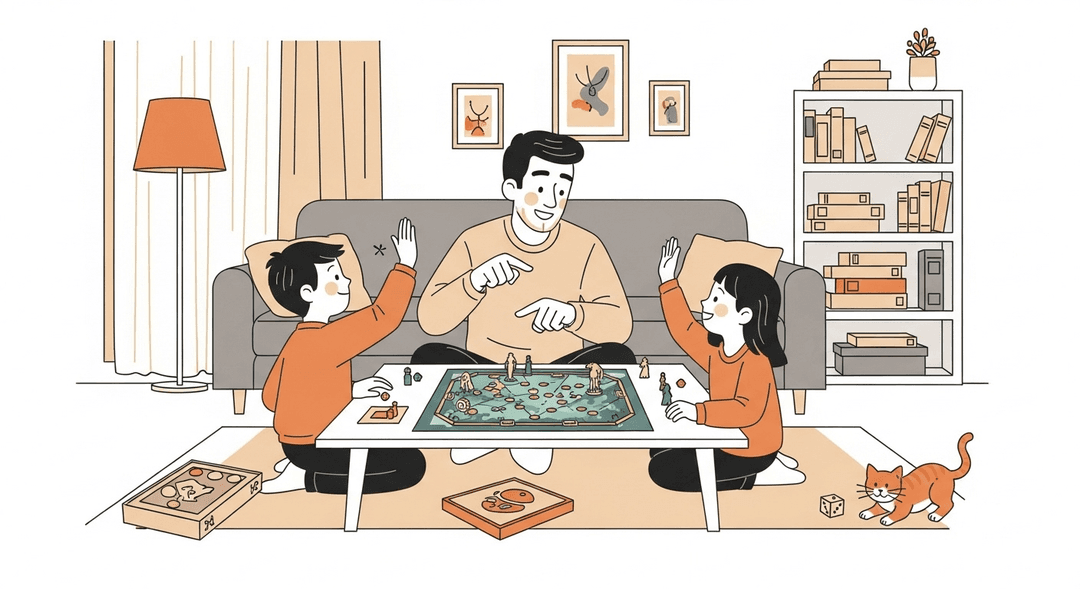Play Games That Involve Cooperation Rather Than Just Competition
Ever feel like family game night is less 'fun bonding' and more 'tiny sibling rivalry Olympics'? Enter: cooperative games, where you all team up to beat the game (not each other). It’s like The Avengers, but with more cardboard tiles and fewer existential crises—unless someone loses the dice under the couch. If you’re tired of refereeing Monopoly meltdowns, this is your jam.
Cooperative play builds empathy, communication, and problem-solving skills—not just for kids, but for grown-ups who occasionally forget how to share (looking at you, last slice of pizza). Brains light up when we collaborate, releasing oxytocin and forging social bonds. Plus, less stress and fewer tantrums mean everyone’s cortisol levels stay (mostly) in check.
How to do it
Start with a simple cooperative board game—think Outfoxed!, Forbidden Island, or Hoot Owl Hoot. Explain that you’re all on the same team, and the real goal is to work together.
- Choose a cooperative game that’s easy to learn.
- Gather everyone and briefly explain the rules.
- Emphasize that teamwork is key—everyone wins or loses together.
- Model good teamwork:
- Ask for ideas from all players.
- Praise effort and creative thinking.
- Laugh off mistakes or setbacks.
- If the game gets tense, remind everyone it’s you versus the game, not you versus each other.
- Keep sessions short and enjoyable.
- Celebrate your team’s victory—bonus points for silly victory dances when you win together!
Key Tips:
- Pick games that are age-appropriate and easy to understand.
- Focus on having fun, not just winning.
- Encourage positive communication and listening.
- Take breaks if anyone feels frustrated.
Remember, the main goal is to enjoy time together and practice working as a team.
